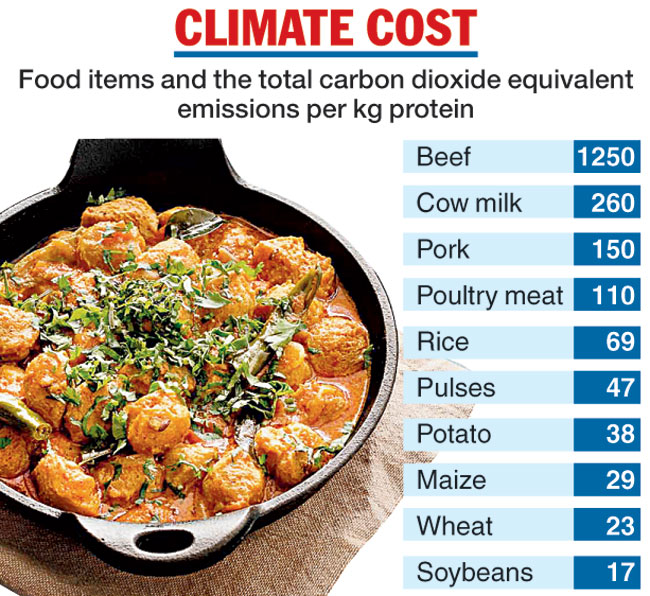A gram of beef protein has a carbon footprint over 25-fold bigger than that of a gram of pulse protein, according to a new assessment of the impact of land and diets on climate change released on Wednesday.
Scientists have earlier argued for dietary shifts away from dairy and beef, but the new study led by researchers at Princeton University has found that earlier assessments have underestimated the impacts of land and diet on climate change.
The study has estimated that the average European’s diet is responsible for as much greenhouse gas emissions over 30 years (nine gigatonnes per year) as can be accounted for the average European’s consumption of everything else, including energy. These estimates are many times higher than typical earlier assessments.
“Our numbers show much larger climate significance for all foods, particularly beef and lamb,” Timothy Searchinger, a research scholar at Princeton University and a specialist in the climate impacts of land use change, told The Telegraph. “Shifts away from beef, lamb and dairy to other foods would reduce these emissions by 70 per cent.”
In their analysis, Searchinger and his collaborators in France, Germany and Sweden factored in how much carbon is lost from forests and other vegetation when land is used for agriculture and livestock.
Their study, published on Wednesday in the research journal Nature, implies that choices of food that people consume has much greater implications for climate change than previously assumed.
The calculations show a kilogram of beef protein has a climate cost of 1,250kg carbon dioxide equivalent emissions, compared to 47kg carbon dioxide for a kilogram of pulse protein or 17kg carbon dioxide for a kilogram of soybean protein. Cow milk also has a much higher climate cost — 260kg carbon dioxide, compared to 110kg for poultry meat.
The study implies that the world’s wealthy could contribute significantly to curbing climate emissions by consuming less beef and dairy. “Although animal products offer health benefits for the food-insecure, we estimate much larger climate benefits than others if the wealthy consume less beef and dairy,” the researchers said.
The study also found that using ethanol or biodiesel from cultivated crops contributes two to three times the greenhouse gas emissions of gasoline and diesel over more than 30 years. In contrast, vehicles relying on solar power, even using currently available inefficient batteries, produce only a few per cent of greenhouse gases of using gasoline or diesel.
“We should abandon biodiesel and biofuels that require land to be used to produce them,” Searchinger said. “Electric cars that use solar energy would be highly efficient in part because it takes little land to produce a lot of solar energy.”
The Union cabinet had earlier this year approved a national policy on biofuels that envisages expanding the use of bioethanol and biodiesel. But the growth of the country’s biofuels programme has been limited by lack of domestic feedstock for biofuels production.

The Telegraph










